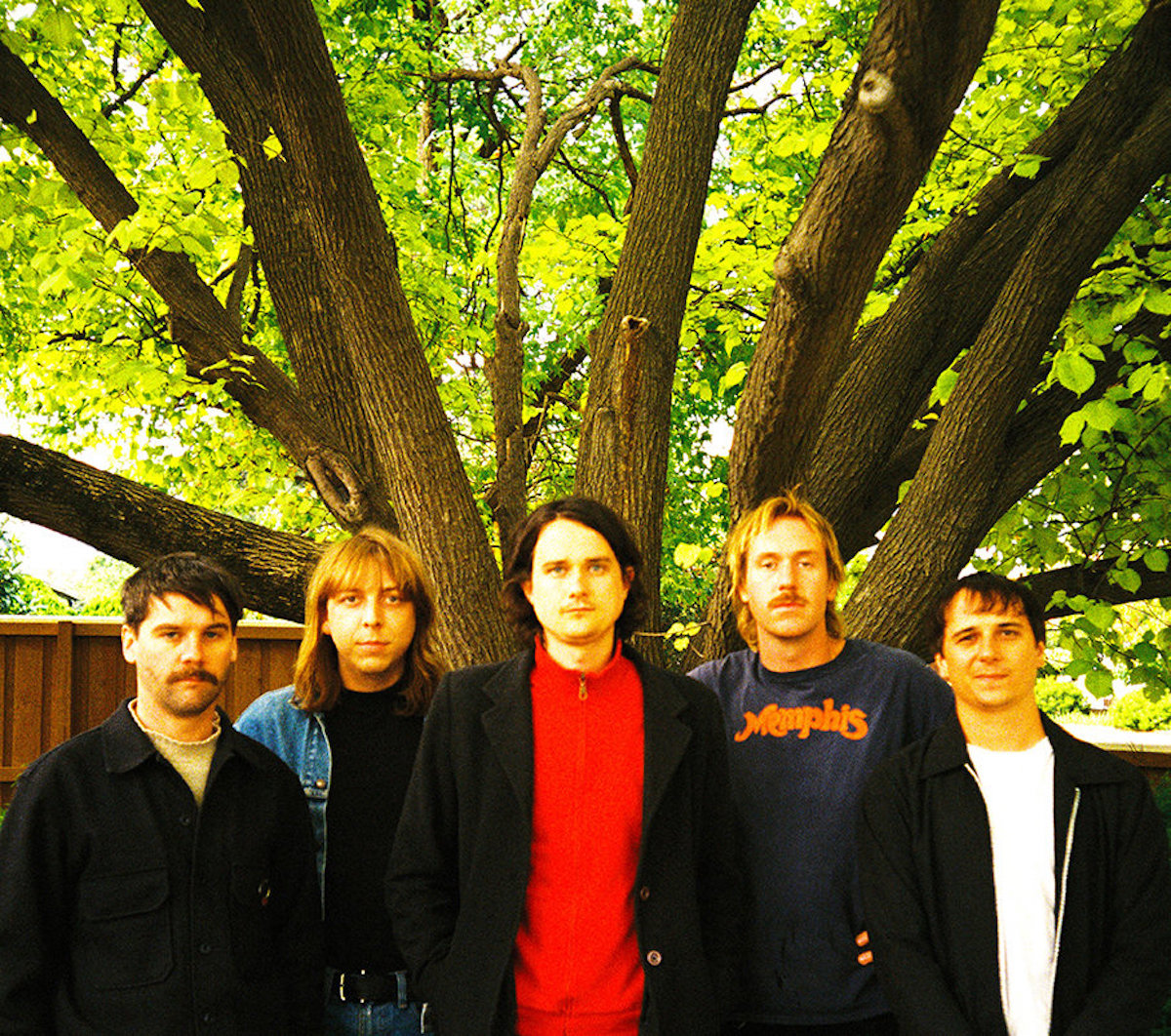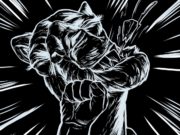THE EDITED PRESS RELEASE: “The sixth full-length from The Murlocs, Rapscallion is a coming-of-age novel in an album form, populated by an outrageous cast of misfit characters: Teenage vagabonds and small-time criminals, junkyard dwellers and truck-stop transients. Over the course of 12 hypnotic and volatile rock-and-roll songs, the Melbourne five-piece dream up a wildly squalid odyssey partly inspired by frontman Ambrose Kenny-Smith’s own adolescence as a nomadic skate kid. The most magnificently heavy work yet from The Murlocs, the result is an endlessly enthralling album equally steeped in danger and delirium and the wide-eyed romanticism of youth.
Self-produced by the band in the early stages of the pandemic, Rapscallion was recorded remotely in the home studios of Kenny-Smith (vocals, guitar, harmonica), Callum Shortal (guitar), Matt Blach (drums), Cook Craig (bass) and Tim Karmouche (keys). In a departure from the effusive garage-rock of 2021’s Bittersweet Demons, the album’s musical DNA contains strains of stoner-metal and the more primitive edge of post-punk, thanks largely to Shortal’s influence as the primary composer on Rapscallion. But despite that darker and more formidable sound, The Murlocs instill every track with the freewheeling energy they’ve brought the stage in supporting Pixies, Stephen Malkmus and The Jicks, Ty Segall and Thee Oh Sees. (A truly dynamic musical collective, all five members also perform in other bands: Kenny-Smith and Craig each play in the globally beloved King Gizzard & The Lizard Wizard, Shortal plays guitar in ORB, and Karmouche and Blach are frontmen for Crepes and Beans, respectively.)

Naming Cormac McCarthy’s Blood Meridian among his inspirations in crafting Rapscallion’s high-tension narrative, Kenny-Smith deliberately challenged himself to stray from the more introspective songwriting of The Murlocs’ past work. “The way we worked was Cal would send off demos for each of us to build from, which allowed me to really focus on the lyrics and write more conceptually,” he says. “I ended up coming with a story of a teenage boy who’s the black sheep of his family, and one day decides to leave home and travel to the city on his own. It was a nice way to escape at a time when we couldn’t go anywhere, and made me feel like I was a feral kid again.”
After kicking off with Subsidiary and its brooding fantasy of breaking free, Rapscallion charges into the gloriously raw intensity of Bellarine Ballerina, a three-minute epic that finds its protagonist hitchhiking on Australia’s Bellarine Highway, where he’s soon picked up by a truck driver. From there, Rapscallion follows its nameless hero through an ill-fated adventure as a train stowaway and a violent encounter at a truck stop, then arrives at the lonesome reverie of Compos Mentis. “At this point he’s woken up in an abandoned junkyard, and he’s starting to question his own mental health,” Kenny-Smith explains. The most tender moment on Rapscallion, Compos Mentis sets that unraveling to a delicate piece of psychedelia, lit up in sweetly lilting harmonies and luminous electric piano. Within the next few tracks, our hero has fallen in with a gang of young bandits — a turn of events that leads into to Virgin Criminal and its frenetically giddy, fuzzed-out account of his initiation into their crew. “It’s about him doing his first crime, ripping off a convenience store, and getting off on the thrill of being an outlaw,” says Kenny-Smith.

Later, on Wickr Man, Kenny-Smith’s voice slips into an irascible drawl as he narrates a sordid moment in the burgeoning love affair between the protagonist and a fellow criminal called Bowlegged Peg. “He and Peg have developed some habits together, and Wickr Man is the two of them waiting to hear back from their dealer — you can sense that they’re starting to treading on some very thin ice,” says Kenny-Smith. By the time Rapscallion closes out, Peg has lost her life to an overdose, leaving the lead character alone and shattered but graced with a newfound wisdom about the ways of the world.
For The Murlocs, the making of Rapscallion marked both a major creative leap and a welcome reminiscence of their own youthful exploits. “As a kid I was out the door as soon I could, just chasing new experience, and it felt good to look back on all these wonderful memories of that time — although there were certainly a lot of very dicey moments too,” says Kenny-Smith. “It was exciting to write in a different way rather than coming up with 12 songs about my anxieties, to live vicariously through that character and get back to a feeling of exploration. I hope when people hear the album they really dig deep into the world of the story we’ve created, and it gives them that same sensation of traveling into the unknown.”









































